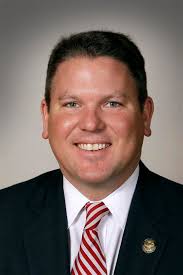I’ve just read this wonderful feature in the Sunday Register about Ronald Autry and his parents, Jim Autry and former Lieutenant Governor Sally Pederson.
The article discusses Ronald Autry’s education and the steps he and his parents took to help him learn to live independently as an adult. It also talks about his parents’ role in creating a new program at the University of Iowa:
The REACH program – Realizing Educational and Career Hopes – is interviewing people who hope to be among the inaugural class of 25 students. It’s only the second program at a major public university in the United States; the other started last fall at UCLA.
“This is the new frontier for special education,” director Dennis C. Harper says.
Students with multiple disabilities will be integrated into the student body, live in residence halls, take classes, do laundry, manage their money.
And learn to fall and get up, just like any young adult.
This sounds like a great program, and I congratulate everyone who helped get it going. It required private fundraising as well as a commitment from the university.
The article reminded me that I haven’t blogged yet about April being Autism Awareness Month. Since becoming a mother I’ve gotten to know several moms of children with autism. It’s a spectrum disorder that manifests in many ways, and most likely has many different causes.
One thing I’ve learned from my friends and acquaintances is that early intervention is extremely important for children with autism. Parents are understandably reluctant to have their children labeled, but if tuned-in parents are genuinely concerned about their child’s development, it’s better to seek out a diagnosis as soon as possible.
Some children with autism respond very well to a special gluten-free/casein-free diet, or extra doses of vitamin B-6 with magnesium, or extensive speech and occupational therapy. I know of some families who have seen so much improvement that their children were able to eventually lose their autism diagnosis.
Not only are the treatment options more likely to work better at a younger age, but a diagnosis may be needed before parents can access some of the state and local services for children with autism.
Lots of resources for families affected by autism can be found on the websites of Autism Speaks and the Autism Research Institute.
However, it’s worth noting that some autistics are offended by the idea that autism is a “disease” that should be “cured”; they want services to support autistics without trying to make their brains function “normally.” The Autism Speaks organization has been particularly criticized by these advocates of “neurodiversity”.
Daily Kos diarist plf515 (who is writing a fantastic series on the Congressional races, by the way) has a learning disability “in the same ballpark as Asperger’s,” which is on the autism spectrum. Last year he wrote a good diary: A little bit special: Things not to say to LD people (or their parents).
I can’t resist ending this diary with plf515’s favorite joke about Asperger’s:
A guy is flying in a hot air balloon, and he’s lost. He lowers himself over a field and calls to a guy “Can you tell me where I am and where I’m headed?”
“Sure. You’re at 41 degrees 2 minutes and 14 seconds North, 144 degrees 4 minute and 19 seconds East; you’re at an altitude of 762 meters above sea level, and right now you’re hovering, but you were on a vector of 234 degrees at 12 meters per second”
“Amazing! Thanks! By the way, do you have Asperger’s Syndrome?”
“I do! How did you know that?”
“Because everything you said is true, it’s much more detail than I need, and you told me in a way that’s no use to me at all.”
“Huh. Are you a clinical psychologist?”
“I am, but how the heck did you know that??”
“You don’t know where you are. You don’t know where you’re going. You got where you are by blowing hot air. You put labels on people after asking a few questions, and you’re in exactly the same spot you were 5 minutes ago, but now, somehow, it’s my fault!
Continue Reading...



